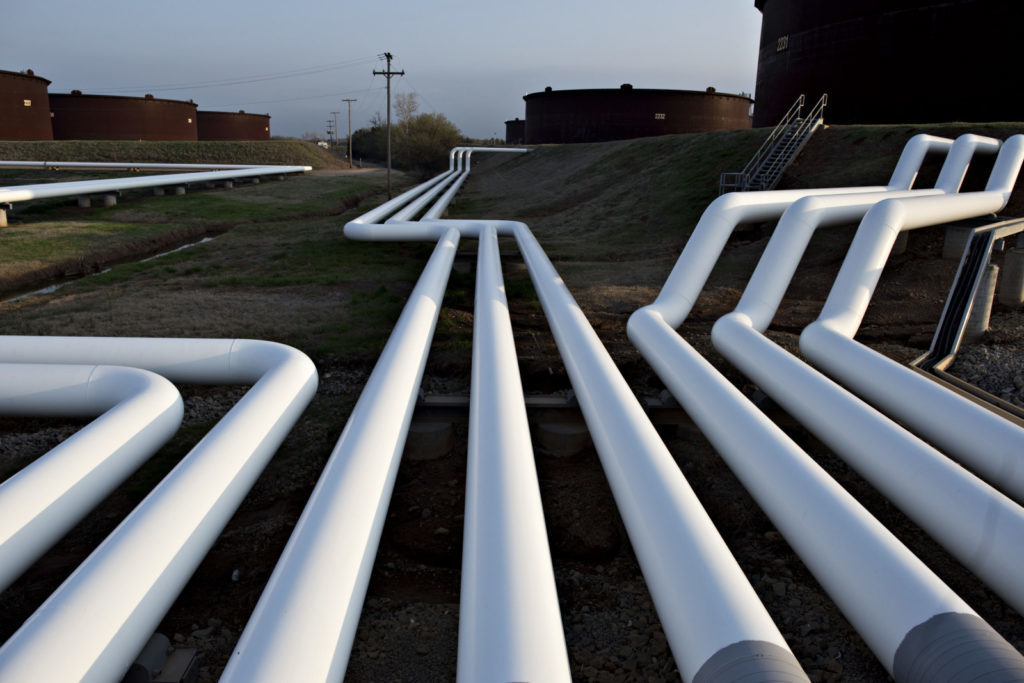
Oil eked out a small gain after tumbling 10% on Tuesday as concerns over virus-driven demand destruction overshadowed a historic deal by the world’s biggest producers slash output.
Futures added 2% in New York to trade a tad below $21 a barrel. While Saudi Arabia and other Gulf producers have pledged to cut supply starting next month, they continue to flood the market, swelling global stockpiles and testing capacity limits. The world is still choking on too much oil and will run out of places to store it within a month, according to trading giant Gunvor Group Ltd.
In the U.S., industry data indicated American crude stockpiles rose by more than 13 million barrels last week, while a key timespread for New York futures moved deeper into contango, signaling an expanding physical glut.
Oil has lost around two-thirds of its value this year after the coronavirus prompted lockdowns across the world to stem its spread, vaporizing consumption for everything from crude to fuels. The International Monetary Fund estimated that global gross domestic product will shrink 3% in 2020, a signal that energy demand may remain weak longer than anticipated.
“This is a demand driven market at the moment and clearly lockdown measures across most of the world are keeping that under pressure,” said Daniel Hynes, an analyst at Australia & New Zealand Banking Group Ltd. in Sydney. “We expect to see prices remain relatively volatile.”
West Texas Intermediate crude for May added 41 cents to $20.52 a barrel on the New York Mercantile Exchange as of 1:46 p.m. Singapore time. The contract has declined almost 20% in the past three sessions. Brent for June delivery gained 1.1% to $29.93 on London’s ICE Futures Europe exchange after closing 6.7% lower Tuesday.
Dated Brent, the benchmark for two-thirds of the world’s physical supply, was assessed at $20.66 on Tuesday, compared with $23.73 on Thursday.
The OPEC+ output deal has only served to avert a complete price collapse, according to Societe Generale SA. The bank forecast Brent will average $30 a barrel in the second quarter, “on the premise that post pandemic normalcy returns, OPEC+ cuts are successful,” and decent compliance.
Saudi Arabia’s crude exports so far in April stand at 9.3 million barrels a day, according to tanker-tracking data compiled by Bloomberg. That compares with 6.8 million barrels a day in the first two weeks of March. There are also at least 10 supertankers with a capacity to haul a combined 20 million barrels waiting to load at the Saudi port of Ras Tanura in the coming days.
The difference between crude production and product demand is about 25 million barrels a day, Gunvor’s co-founder and chief executive officer Torbjorn Tornqvist said. Storage both on land and at sea is filling up as traders rush to find a place for the unwanted crude. “It may be hard to even find a place to store oil three to four weeks from now,” he said.